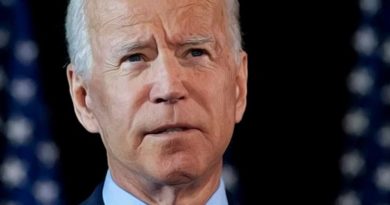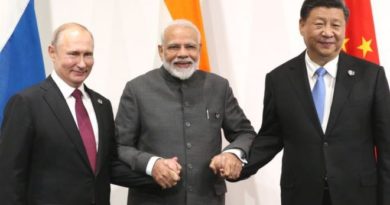What India can learn from Sri Lanka crisis?
There is no comparison between India and Sri Lanka. Sri Lanka is a very small country in terms of economy and population is also very less than India.
Despite this, many such posts can be seen on social media these days, in which it is being said that a few days ago the same thing was happening in Sri Lanka which is happening in India these days. So is India also on the way to Sri Lanka?
In response to this question, several screenshots are being shared in which news from Sri Lanka’s dateline has been published in which there are reports of halal boycott, attacks on Muslim shops and mosques and violence against Christians.
Although the opinion of the experts is different about the role of all these news in the Sri Lankan crisis, but one thing on which there is a common opinion among the experts is the lesson to be taken from this crisis.

The story of what is happening in Sri Lanka today started as an economic crisis. But the effect of this economic crisis is now in front of the world in the form of a political crisis.
sufficient foreign exchange reserves
In this context, what India can learn from Sri Lanka can be divided into two parts – economic lessons and political lessons.
Poolapri Balakrishna, professor of economics at Ashoka University, Sonepat, says that all the economies of the world are different, but there are some formulas that apply to everyone.
For example, if a country does not have sufficient quantity of essential food items, then that country has to import those goods from outside, for which foreign exchange reserves are needed. To get foreign exchange, that country needs to export something, for which it should also be ready to compete in the international market.
Professor Poolapri Balakrishna says, “The first lesson that India needs to take from the Sri Lanka crisis on the economic front is to keep an eye on the forex reserves. India has nothing to worry about in this respect.
But in the long run, the central government needs to focus on how the Indian government can reduce its import bill.”
Traditionally it is believed that a country’s foreign exchange reserves should be sufficient for at least 7 months of imports.
Steps to reduce import bill
It is important for India that in the coming days, there is a need to pay attention to alternative energy sources, reduce foreign dependence for coal, as well as how to increase the production of edible oil in the country itself. This will help in reducing the import bill and become self-reliant.
According to statistics, India imports 80-85% of its oil requirement from outside countries. In the last few days, amidst the Russia-Ukraine crisis, oil prices have seen a jump. If India continues to depend on the countries of the world for oil in the same way and oil prices keep on increasing, then it will not take time to empty the foreign exchange reserves. Because of this, India will have to rapidly increase its dependence on alternative sources of energy. This cannot happen overnight, it will require long planning.
The same is the case with the coal sector. India is dependent on imported coal for electricity. In recent times, some states also faced power crisis.
The story of edible oil and gold is no different from that of coal and petrol and diesel. A major part of India’s import bill is also spent on these.
To reduce this dependence, along with the government, the public also needs to take initiative.
The other side of the Sri Lankan crisis is also political. In that sense too, there are many things that India can learn.
Centralization of power
Professor Poolapri says that centralization of power in the hands of a few people for years is not in the interest of any country.
Regarding Sri Lanka, he says that the way the Rajapaksa family has dominated the power there for years, similarly the situation is also in India. Here too, the right to take economic and political decisions is in the hands of a few selected advisors of the government. By the way, all the governments in India (be it the state government of Kerala or the Modi government at the center) are working with a partisan attitude.
According to him, taking lessons from the Sri Lankan crisis, the Indian government needs to bring about a change in this strategy.
Majoritarian politics
The majority of the population in Sri Lanka is Sinhala and the Tamil minority. The government there has often been accused of doing politics of the majority.
Congress leader Jairam Ramesh has also made a tweet making the same allegation.
He wrote, “Having been a student of Sri Lanka for a long time, I can say that the crisis of this beautiful country has more to do with the linguistic, religious and cultural majoritarianism that has existed for the past decade than the short-term economic reasons. There are lessons for that too.”
Even today in India, many non-BJP ruled states are accusing all states of imposing Hindi language. The news of hijab, loudspeaker, temple-mosque dispute, dispute over meat are coming these days in different states of the country.
Professor Poolapri says, “I associate the politics of majoritarianism with the cultural agenda. Because of this kind of politics, a section of the country starts feeling isolated. The result is that the real issues of the government are distracts attention.”
Something similar happened in Sri Lanka. In India too, this is happening in different states for many days.

Strong Civil Society and Constitutional Institutions
When this is happening in a country, then civil society and constitutional institutions also play a big role in it.
Pointing to this, Kotak Mahindra Bank CEO Uday Kotak tweeted, “Russia-Ukraine war is going on and it is only getting tougher. The real test of the countries is now. Judiciary, Police, Government, Parliament of institutions like Strength will matter. Doing what is right, not populist, is important. A ‘Jalta Lanka’ tells all of us what not to do.”
Dr Gulbin Sultana, Associate Fellow, who oversees Sri Lankan affairs at the Manohar Parrikar Institute for Defense Studies and Analysis (IDSA), also seems to agree with Uday Kotak.
She considers many reasons responsible for the current situation in Sri Lanka. According to them the debt burden, the way the government is run, their policies are all responsible somewhere. Because of this, she says that the Indian government can take so many lessons that governance should never be ignored and decisions should not be taken only for the politics of votes as the Sri Lankan government did.
Giving an example, she says, Gotabaya Rajapaksa had promised tax exemptions to the public in the wake of the 2019 presidential election. When he came to power, he also implemented it. Due to the exemption in that tax, there was a lot of impact on the income of the government.
It was clear, while making promises, only electoral gains were seen, ignoring the opinion of experts or the impact on the economy. In such a situation, it was necessary that the voice of Parliament and the judiciary or civil society should be vocal.
In India too such election promises are made a lot. Sometimes the matter reaches the court, sometimes the civil society makes noise on it and sometimes there is a ruckus in the Parliament of the country.
One of the biggest lessons of the Sri Lankan crisis is that these institutions need to be more vigilant.
Long Loss for Quick Gains
Dr Sultana talks about paying attention to another important decision of the Sri Lankan government.
In the midst of Sri Lanka’s economic crisis, the government felt that foreign exchange could be saved if the import of fertilizers was stopped. And in April 2021, Gotabaya Rajapaksa announced a ban on the import of all chemicals used in agriculture.
But the government could not think of the far-reaching consequences of this decision. As a result, the yield was affected. Agricultural production was very low without manure. By November, the government had to change the decision.
For this reason Dr. Sultana says, “It is important to take the opinion of different experts in the decisions taken by the government. The Indian government also needs to understand this.
Decisions taken for quick gains can be disastrous in the long run.”



